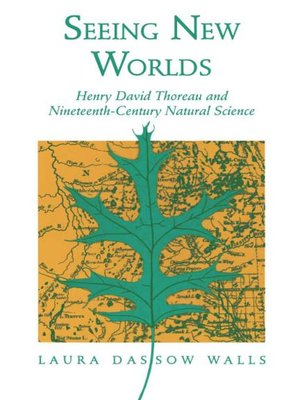Seeing New Worlds
ebook ∣ Henry David Thoreau and Nineteenth-Century Natural Science · Science & Literature
By Laura Dassow Walls

Sign up to save your library
With an OverDrive account, you can save your favorite libraries for at-a-glance information about availability. Find out more about OverDrive accounts.
Find this title in Libby, the library reading app by OverDrive.



Search for a digital library with this title
Title found at these libraries:
| Library Name | Distance |
|---|---|
| Loading... |
Thoreau was a poet, a naturalist, a major American writer. Was he also a scientist? He was, Laura Dassow Walls suggests. Her book, the first to consider Thoreau as a serious and committed scientist, will change the way we understand his accomplishment and the place of science in American culture.
Walls reveals that the scientific texts of Thoreau's day deeply influenced his best work, from Walden to the Journal to the late natural history essays. Here we see how, just when literature and science were splitting into the "two cultures" we know now, Thoreau attempted to heal the growing rift. Walls shows how his commitment to Alexander von Humboldt's scientific approach resulted in not only his "marriage" of poetry and science but also his distinctively patterned nature studies. In the first critical study of his "The Dispersion of Seeds" since its publication in 1993, she exposes evidence that Thoreau was using Darwinian modes of reasoning years before the appearance of Origin of Species.
This book offers a powerful argument against the critical tradition that opposes a dry, mechanistic science to a warm, "organic" Romanticism. Instead, Thoreau's experience reveals the complex interaction between Romanticism and the dynamic, law-seeking science of its day. Drawing on recent work in the theory and philosophy of science as well as literary history and theory, Seeing New Worlds bridges today's "two cultures" in hopes of stimulating a fuller consideration of representations of nature.







